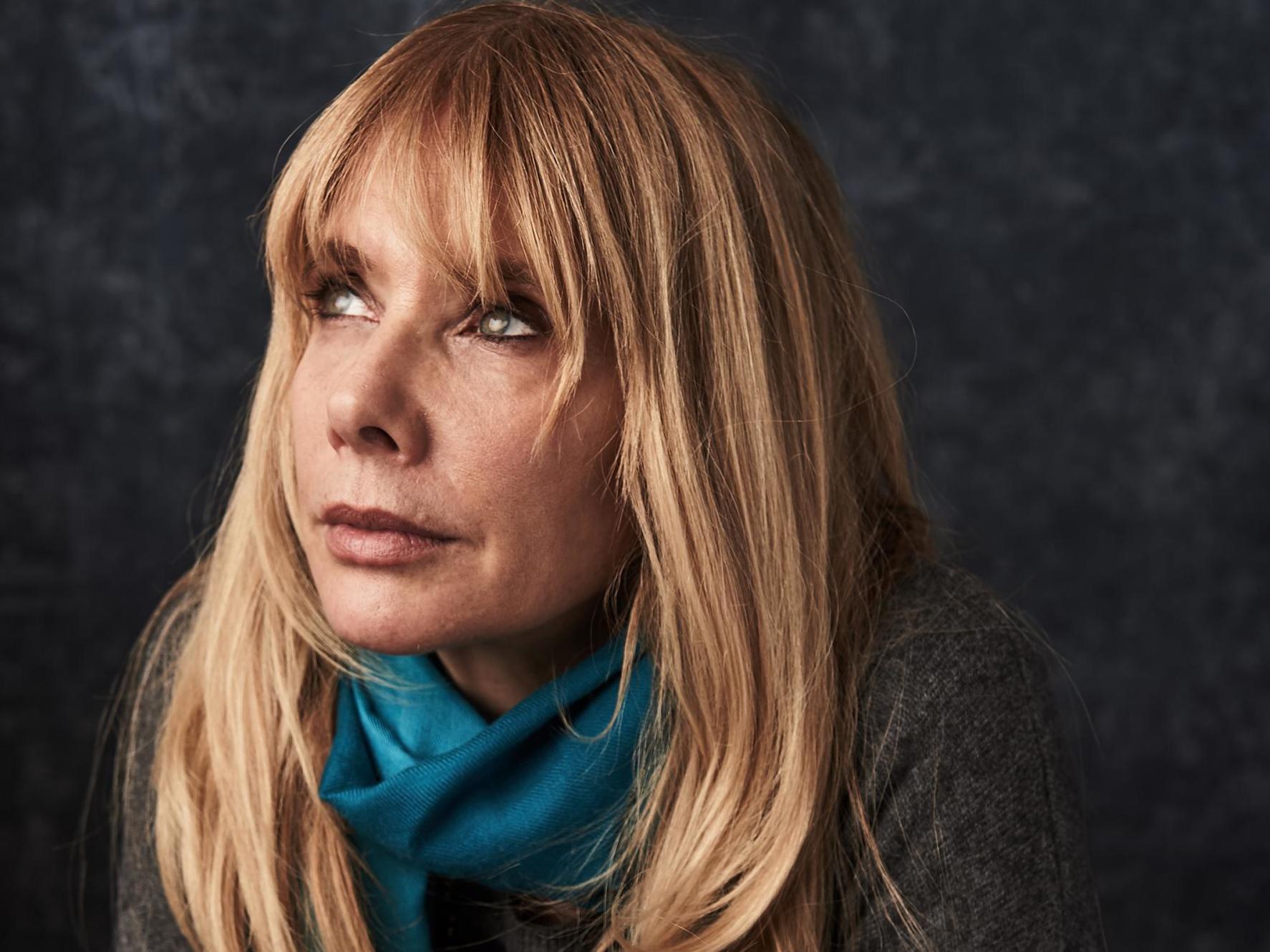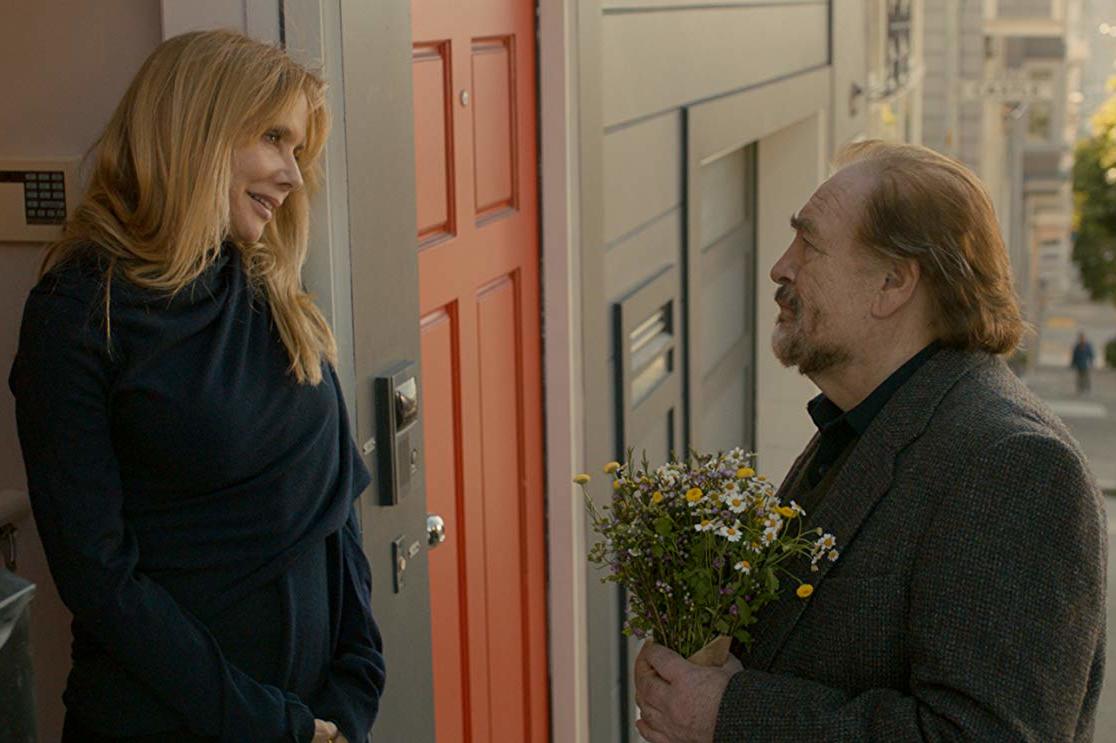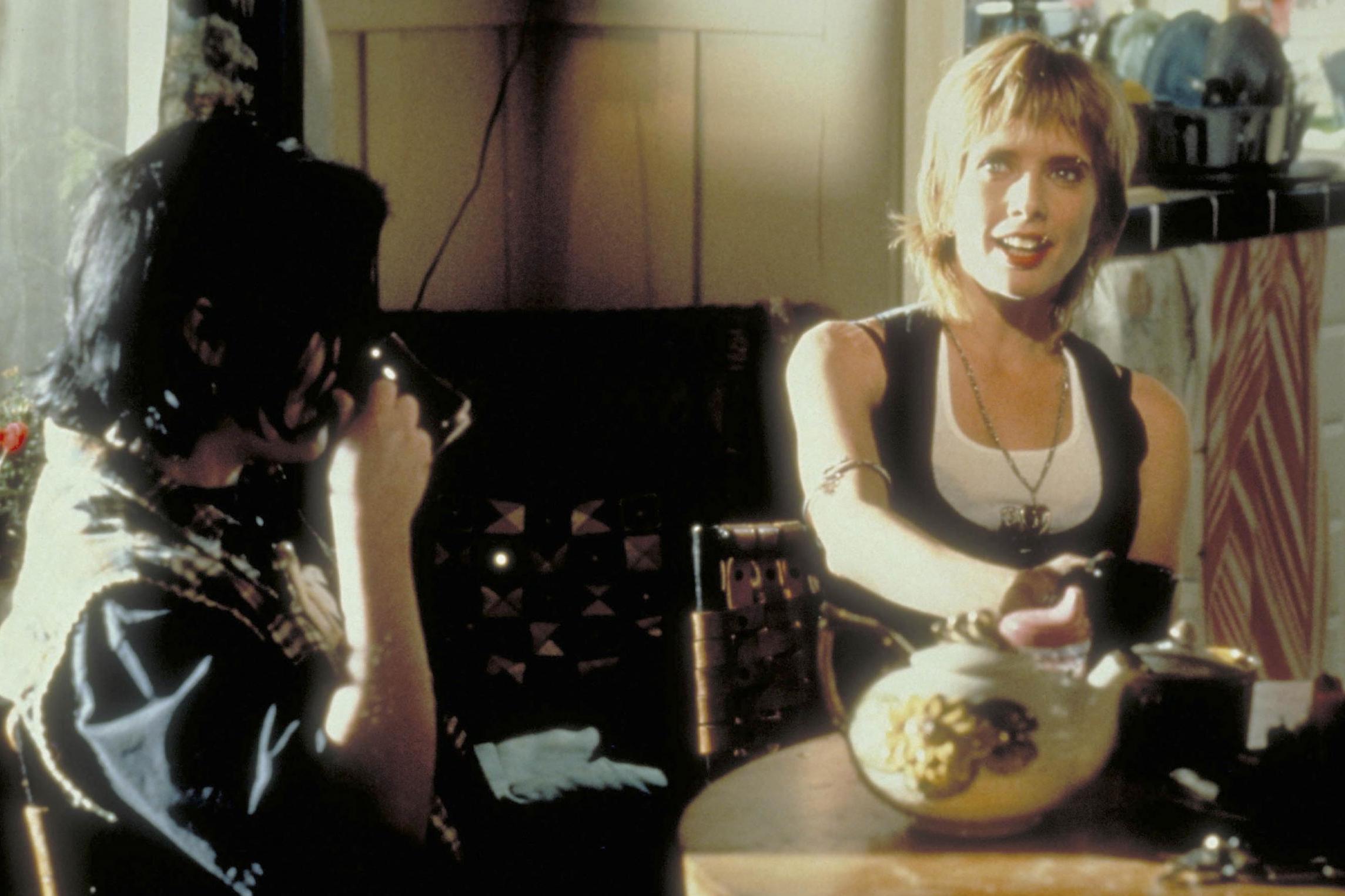Rosanna Arquette interview: 'If I went after every guy that pinched my ass, it would be ridiculous'
Once one of Hollywood’s most in-demand names, Arquette stumbled in her career after refusing Harvey Weinstein’s alleged advances. Alexandra Pollard talks to the ‘Rory’s Way’ actor about the incident – and her excoriating take on Washington


For about a decade from the mid-Eighties, Rosanna Arquette seemed to be inching her way to stardom. After her double act with Madonna in the screwball caper Desperately Seeking Susan (1985) – a role that won her a Bafta – she became the rare actress to work twice for Martin Scorsese, in his black comedy After Hours (also 1985) and New York Stories (1989). She’d go on to appear, too, in Luc Besson’s The Big Blue (1988), Quentin Tarantino’s Pulp Fiction (1994), and David Cronenberg’s ultra-controversial Crash (1996). But then, very suddenly, her career went quiet. So quiet, in fact, that she was asked why she’d disappeared, in a 2007 interview. “I took a different path,” she replied, vaguely. “I went for the little artistic films that spoke to me.”
“You couldn’t come back and say, ‘Well, my career was sabotaged’,” she says now. “How do you prove that?” The 59-year-old, here to promote her new film Rory’s Way, is talking about Harvey Weinstein. In 2017, the Hollywood movie producer was accused by more than a dozen women of sexual harassment, assault, and rape, dating back several decades. Arquette was among the early accusers, telling Ronan Farrow, in an article for The New Yorker, that in the early Nineties, Weinstein had asked her to meet him in his hotel room to collect a script. After he opened the door in a bathrobe, she said he grabbed her hand and pulled it towards his erect penis. When she rejected his advances, “Weinstein told her that she was making a huge mistake”.
The producer strongly denied the allegations, but they continued to metastasise, leading to the creation of the #MeToo and Time’s Up movements that have since spread across the world. “People who have been silent for so many years, who were afraid to speak out, they’re now telling their stories,” says Arquette. “And of course, there’s incredible resistance from very misogynistic men who do not want this paradigm shift.”
She is hesitant to “demonise everybody”, though. “If I went after every guy that pinched me in the ass, I mean it would be ridiculous. But we’re talking about assault, rape, trying to destroy somebody’s career because they didn’t have sex with you. That’s the focus for me. But also, calling out behaviour that feels lechy and creepy, and being able to voice that, and then someone saying, ‘I’m really sorry, I’m going to change my behaviour’, we have to applaud those men that are willing to do that, because that’s how change is going to happen.”
Arquette believes that her “life and career was heavily impacted by saying no” to Weinstein, although she admits that his professional impact is hard to substantiate. “There were so many people at play,” she says. “You have the agents and managers, and it really is as simply as someone sitting down at a dinner with him and [him saying], ‘Oh, don’t work with her, she’s a pain in the ass.’ So a big director will go, ‘I don’t want to work with a pain in the ass, I’m not gonna hire her.’ It’s that simple. Or I’ve had times where the director really wanted me, and then the studio wouldn’t go with me. It’s hard. Many women lost a big chunk of our lives, and now we’re older. But you can’t sit in regret, because then you’re just not living now.”
Besides, her career is getting back on track. She’s about to start shooting the Ryan Murphy Netflix series Ratched, alongside Sarah Paulson. That casting decision was heavily influenced by Paulson, a long-time Murphy collaborator who will also produce the series. Announcing the news on Instagram, Paulson said that Arquette’s struggle to find work had been “a direct consequence of her bravery”.
But she’s here today to talk about Rory’s Way, a sweet, low-key drama about a gruff Scotsman (Brian Cox) who leaves his isolated Hebridean island to seek medical treatment in San Francisco. There, he reunites with his estranged son, and falls in love with Arquette’s self-possessed museum curator, Claudia. They’re about as odd a couple as they come, but surprisingly lovely together. “She’s comfortable in her own skin, she’s not really looking for a relationship,” says Arquette, “I felt like it was more of a karmic connection they had, even though it’s for such a short period of time. To be able to experience that before he goes was her gift – their gift together.”

As much as it is a love story, though, the film is about clashing cultures. “Truth or not, they don’t like it when you say what you really think about things here,” says Rory’s Scottish-born son of San Franciscans. Arquette finds that perspective amusing. “I think it’s the other way round! I think Americans have always been pretty outspoken. I always found that if you had emotions in England, it’s like, ‘Here’s a cup of tea.’” Before I can point out that Scotland and England aren’t quite the same thing, she adds hastily, “By the way, I want to live in England someday. I must have lived there in another life, I always feel so good there.”
In this life, Arquette was born in New York City, and raised in a commune in Virginia by her actor parents. She and her four siblings – Patricia, David, Alexis and Richmond – all followed in their parents’ footsteps and became actors, too. When Arquette’s career was still at a low point, her sister Patricia won an Oscar for 2014’s Boyhood. But they are a close family (her sister, Alexis, who was transgender, died from AIDS-related causes in 2016), and Arquette seems to have enjoyed her childhood in Virginia. The country is a very different place now, though.
“It’s heartbreaking to watch what is taking place in what was once a very great country,” she says. “To watch, slowly, a dictatorship come in – and it is a fascist government – and try to dismantle democracy. It’s crazy, Fox News has become state television, and sometimes I wonder... by the way are you owned by Fox? Is this newspaper owned by Fox? Or Rupert Murdoch?” No, it isn’t. “You wonder; what deal did the Murdochs make with Putin? Because Fox news is just ridiculous. I’ve never seen anything like it. All they do is lie.”
Arquette is impassioned, rightly so, but her passion occasionally veers into hyperbole. “It’s hypnotism, it’s mind control,” she says of the right-wing media. “The people that are buying this, what’s really frightening, and really, really sad for them, is that they are believing this and they’re not gonna be protected. They’re losing their healthcare. You have healthcare in your country, we don’t. We’re losing everything, the environment is just ridiculous, the Clean Water Act they’re trying to shatter, so the big pollutants will just all be… we’ll have no clean water. They’re just trying to kill us, that’s what it feels like.”

She’s worried, too, about immigrant children being separated from their parents at the border between the US and Mexico. “Where are the children? That’s the most important question in my life. I have my own theory. I am certain they won’t be coming back, because… I question, have they been sold into sex trafficking? What’s going on? Who takes a screaming, crying, sick baby away from her mother? These people are fleeing horrible violence, and it’s not against the law to seek asylum. It’s part of what our country is.”
The answer, in Arquette’s view, is to combat hatred and violence with love. “Hate is a powerful energy. If you want to do anything, resist hate. Resist it. In the resistance, we really can’t come from hate, we have to come from love, we have to find a way to stay in the energy of that, because that light will dispel darkness.”
Which isn’t to say that she’s afraid to get on the wrong side of people. I’m reminded of something the director David Cronenberg once said about Arquette – that she was “fierce to the point where you’re almost afraid to unleash her on your enemies”. She is thrilled when I read the quote back to her. “That’s the best! Man do I love that. Thank you David Cronenberg, my gosh.” So she takes it as a compliment? “Being fierce is a compliment! It’s not an insult.” She chuckles. “And, well, it ended up being true, huh?”
Rory’s Way is in UK cinemas from Friday
Join our commenting forum
Join thought-provoking conversations, follow other Independent readers and see their replies
Comments
Bookmark popover
Removed from bookmarks